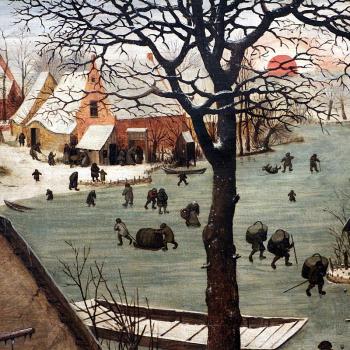One can easily see how this plays out with President Trump. To fans, he’s brave and charismatic: a go-getter. To detractors, he’s pompous, demagogic, and self-serving.
The power is in the name.
What we might not realize, however, is that understanding the importance of naming vices and virtues goes back a long way. It even has a special name: paradiastole. Thinking with ancient and medieval authorities on this question might just help us figure out when a vice is a vice and a virtue is a virtue.
So, what is paradiastole?
A figure by which one extenuates something in order to flatter or soothe, or by which one refers to a vice as a virtue. (Rhetoric.Byu.Edu)
The same page gives an example: we might call a proud man confident, or, in reverse, a confident man proud. The idea is that there is some base comportment that can be spun one of two ways and that ultimately telling the two apart becomes nearly impossible. One man’s self-assured dimwit is another’s confident leader.
The device is common in ancient and medieval rhetoric. It’s useful for writing off an enemy: “oh sure, he looks humble, but it’s really just sloth. He doesn’t want to do anything and disguises it under a veil of humility!” One can find examples in figures as disparate as Prudentius, Gregory the Great, and William Langland (many exempla, especially in late-medieval France, can be found here).
But there’s a problem: if the figure really is merely rhetorical, we’re left with no meaningful way to decide rationally what is actually confidence and what is actually pride (or what is actually ire and what is actually righteous zeal). Perspective begins to mean everything; what one brings to the table defines what one believes about the reality of the virtue or the vice. To think thus would not put us in bad company. In Piers Plowman, for example, characters often stop speaking when confronted with the constant ping pong of adjudicating between competing sides. In Passus IV (basically Chapter IV) of the C-Text, the king silences debate between Meed (reward) and Conscience. They’re supposed to marry, but it’s unclear if Meed can really be trusted (reward can easily come to unjust people). Thus:
“Cease now!’ saith the king. “I suffer you no longer,
Ye shall agree, forsooth and then serve me both.
Kiss her,” quoth the king · “Conscience, I bid thee.”
(C .IV. 1-30)
But silence seems a terrible answer before such equivocation. Can’t we do more?
I like to think that, to some degree, we can.
The onus is on us to interrogate ourselves: in thought, in prayer, and in our everyday actions. Take my Skojec example from above: do I think the Church is in a period of extreme decay and corruption? If so, why? Are my assumptions based in a particular narrative? What are the competing narratives and how might they challenge or suspend my concerns?
If one doesn’t think Islam is a violent, political ideology entirely interested in the destruction of the West (and if one doesn’t think the West is overly welcoming to Muslims), then it’s hard not to see Skojec’s anger as out of line. If one buys these premises, one probably thinks Skojec’s anger is justified, even righteous.
This isn’t easy. It requires a recognition of the language we and others use; it forces us to think about how we decide to name things and how those decisions constantly imply certain things about what we and our interlocutors believe. This is how minds are changed, however; it’s how we grow. Our only other option is intellectual trenches and occasional sniping. And, as World War One shows us, that doesn’t go anywhere.
In saying all of this, I’m reminded of something I saw said on Facebook earlier today (to paraphrase): the goal of discussion is not to convince, but to understand in love and empathy. It seems to me that examining the nature of paradiastole is one way to increase love and empathy, to interrogate ourselves and others to avoid grouchiness and, worse, hopelessness.













